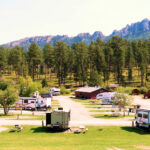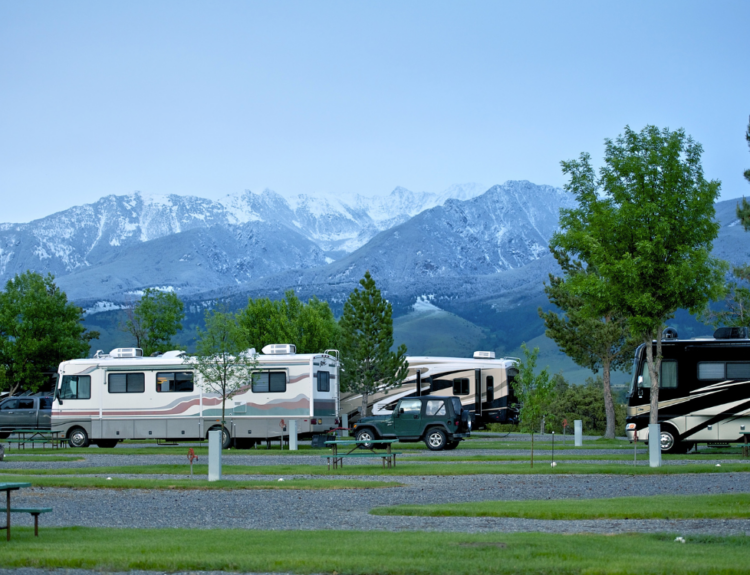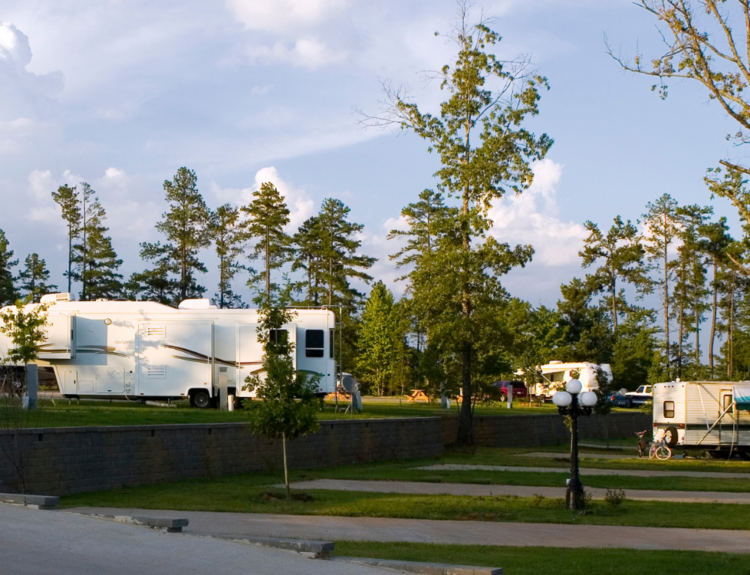Extended-stay rentals offer campground owners a unique opportunity to increase revenue and build guest loyalty. With the growing trend of longer stays among retirees, remote workers, and traveling professionals, it’s vital to manage these rentals effectively.
This comprehensive guide explores best practices for managing extended-stay rentals, covering essential aspects such as infrastructure preparation, marketing strategies, financial management, and enhancing guest experiences.
By following these strategies, campground owners can create a thriving environment that caters to the needs of extended-stay guests, ensuring long-term success and profitability.
Whether you’re looking to attract more extended-stay guests or optimize your current operations, this article provides the insights and actionable steps needed to excel in this lucrative market.
Understanding Extended-Stay Rentals
What Are Extended-Stay Rentals?
Extended-stay rentals refer to accommodations that are rented out for longer durations, typically ranging from several weeks to several months.
Unlike short-term rentals, which cater to vacationers and transient travelers, extended-stay rentals are designed to serve guests who need a temporary yet longer-term living arrangement. These can include retirees seeking seasonal retreats, remote workers needing a change of scenery, and professionals on long-term assignments.
These rentals often feature amenities that make them comfortable for longer stays, such as kitchen facilities, laundry services, and reliable internet access. The goal is to provide a home-like environment that meets the needs of guests over an extended period.
Why Offer Extended-Stay Rentals?
Offering extended-stay rentals presents numerous benefits for campground owners.
- Increased Revenue Potential: Extended-stay guests contribute to higher overall revenue. While the nightly rate may be lower than short-term rentals, the cumulative revenue over weeks or months is significantly higher, creating a stable income stream.
- Enhanced Guest Loyalty and Satisfaction: Longer stays allow owners to build stronger relationships with guests, fostering repeat business and positive word-of-mouth referrals. Extended-stay guests are often more responsible and take better care of the facilities, leading to lower maintenance costs and fewer issues.
- Reduced Turnover Costs: Extended-stay rentals reduce turnover costs. Fewer check-ins and check-outs mean less frequent cleaning and administrative work, allowing staff to focus on providing excellent service to long-term guests. This efficiency contributes to overall operational smoothness and cost savings.
Preparing Your Campground for Extended-Stay Rentals
Infrastructure Requirements
Utilities and Amenities
To attract and retain extended-stay guests, it’s crucial to provide reliable utilities and amenities.
- Electrical Hookups: Consistent and adequate electrical hookups are essential, as extended-stay guests often have higher power needs.
- Water and Sewer Services: Ensure that your campground offers easy access to clean water and efficient sewer services.
- Internet and Cable TV: Reliable internet and cable TV are vital, especially for remote workers and long-term guests who require these services for work and leisure.
- Laundry Facilities: On-site laundry facilities are a significant draw for extended-stay guests. Consider installing coin-operated or card-operated washers and dryers to offer convenience.
- Kitchen Amenities: Providing kitchen amenities, either in shared facilities or enhancing individual sites with cooking amenities, can also make your campground more appealing to long-term guests.
Site Layout and Design
Designing your sites to accommodate extended stays involves creating a comfortable and convenient environment.
Provide spacious sites that allow guests to feel comfortable and have enough room for their belongings. Privacy is crucial for extended-stay guests, so consider natural landscaping or physical barriers like fences or hedges to offer a degree of seclusion.
Ensure that your sites are easily accessible and close to essential amenities such as restrooms, laundry facilities, and recreational areas. Catering to the needs of guests with mobility issues is also important, so make sure your campground complies with ADA standards.
Zoning and Regulations
Local and State Regulations
Compliance with local and state regulations is vital to avoid legal issues and ensure smooth operations.
Verify that your campground is zoned for extended stays and obtain the necessary permits. Some areas have specific regulations regarding the duration of stays, so it’s essential to adhere to these requirements. Regular inspections and adherence to health and safety standards will help maintain a safe environment for your guests.
Legal Considerations
Ensure your insurance policy covers extended-stay rentals and consider additional liability coverage to protect against potential risks. Extended stays can introduce different liabilities, so it’s essential to be adequately covered.
Marketing Your Extended-Stay Rentals

Identifying Your Target Market
Conducting market research helps identify potential guests and understand their needs. You can develop ideal customer profiles to guide your marketing strategies.
- Retirees may prefer quiet, scenic locations with easy access to healthcare and recreational activities.
- Remote workers need high-speed internet, comfortable workspaces, and quiet environments conducive to productivity.
- Traveling professionals prioritize convenience and proximity to business hubs, reliable transportation options, and business services.
By understanding your target market and developing ideal customer profiles, you can create targeted marketing campaigns that resonate with potential guests.
Online Presence
A strong online presence is crucial for attracting extended-stay guests.
- Ensure your website is optimized for search engines to attract potential guests searching for extended-stay rentals. Use keywords like “extended-stay rentals,” “long-term RV stays,” and “monthly RV park rentals” throughout your website content.
- Include high-quality photos and detailed descriptions of your amenities and services.
- Leverage social media platforms to reach a wider audience. Share engaging content, including guest testimonials, behind-the-scenes looks at your campground, and special promotions.
- Use targeted online advertising to reach potential guests based on their interests and demographics.
To help RV parks create high-quality websites, Roverpass created a solution called Premium Website Builder. With SEO optimization and content creation skills, we can create a visually appealing, user-friendly website, ensuring your site ranks well in search engines, and making it easier for potential extended-stay guests to find you.
Partnerships and Collaborations
Forming partnerships and collaborations can help boost your visibility and attract extended-stay guests.
- Collaborate with local businesses and tourism boards to promote your extended-stay rentals.
- Offer package deals or discounts to guests who visit local attractions or use local services.
- Partner with online travel agencies and RV clubs to list your extended-stay rentals and reach a broader audience. Many travelers rely on these platforms to find and book accommodations.
Roverpass Channel Management Optimizer is a solution designed to allow campgrounds to manage reservations from multiple online travel agencies in one place. Real-time updates on availability, rates, and reservation information eliminate the possibility of double bookings or overbooking while you make your campground accessible to a wider audience.
Managing Extended-Stay Guests
Guest Onboarding and Orientation
- Providing welcome packages can enhance the guest experience and make them feel valued. Include detailed information about your campground, local attractions, and essential services like healthcare facilities and grocery stores.
- Provide guides to local restaurants, shops, and activities, highlighting hidden gems and popular spots. Offer discounts on local services or attractions as a welcome gesture to help guests feel appreciated and encourage them to explore the area.
- Conducting orientation sessions can help guests understand your campground’s rules and available amenities. Clearly explain your campground’s rules and regulations, including quiet hours, pet policies, and waste disposal procedures. This helps set expectations and prevent potential issues.
- Provide an overview of the amenities and services available at your campground, such as laundry facilities, recreational areas, and organized activities. Ensure guests know how to access these amenities and make the most of their stay.
Book a FREE, personalized demo
Providing Excellent Customer Service
Establishing clear communication channels is essential for addressing guest needs and concerns.
- Use email for regular updates, reservation confirmations, and important announcements. Ensure guests know how to reach you via email for non-urgent inquiries.
- Provide a phone number for urgent matters and ensure someone is available to answer calls during specified hours. Consider offering a 24/7 emergency contact number for immediate assistance.
- Make yourself or a staff member available for in-person support during office hours. Personal interactions can help build trust and rapport with guests.
Effectively addressing guest issues and concerns can enhance their overall experience. Listen to guests’ feedback, apologize for any inconveniences, and take appropriate action to resolve the issue.
Providing excellent customer service can turn a potentially negative experience into a positive one.
Financial Management for Extended-Stay Rentals
Pricing Strategies
Conducting a competitive pricing analysis can help you set attractive and profitable rates. Research the rates of nearby campgrounds and RV parks offering extended-stay rentals.
Ensure your pricing is competitive while reflecting the value and amenities you offer. Use dynamic pricing strategies, adjusting your rates based on seasonal demand.
Offering discount programs can incentivize extended stays and encourage guest loyalty. Provide discounts for guests who book longer stays, such as weekly or monthly rates. This encourages guests to extend their stay and increases your occupancy rates.
You can also implement a loyalty program that rewards repeat guests with discounts, special offers, or exclusive perks. This can help build a loyal customer base and encourage guests to return.
Handling Payments and Billing
Offering flexible payment options can make the booking process more convenient for guests. Use online payment systems, such as those integrated with a Receipt Maker, to allow guests to book and pay for their stays easily. Set up automatic billing and invoicing for extended-stay guests. This simplifies the payment process and ensures timely payments.
Effective financial tracking and reporting are essential for managing extended-stay rentals. Use accounting software and tools to track income, expenses, and financial performance. This can help you monitor your cash flow and make informed business decisions.
RoverPass campground reservation software is a standout management and booking solution that offers a comprehensive suite of features designed to simplify and streamline reservations, payments, and availability.
Empowered by its recent integration with QuickBooks, our campground reservation software allows for seamless financial management, from tracking expenses and managing budgets to generating detailed financial reports.
Enhancing Guest Experience
Activities and Events
Organizing community events can create a sense of community and enhance the guest experience. Host regular social gatherings, such as potluck dinners, barbecues, and campfire nights.
These events provide opportunities for guests to socialize and build connections with fellow campers. Offer recreational activities, such as guided hikes, yoga classes, and arts and crafts workshops. These activities can keep guests entertained and engaged during their stay.
Local Experiences
Offering local experiences can help guests explore and enjoy the surrounding area. Partner with local tour operators to offer guided tours and excursions to nearby attractions.
This can include hiking trips, wine tastings, and cultural experiences. Collaborate with local attractions, such as museums, theme parks, and adventure sports providers, to offer exclusive discounts and packages to your guests.
Maintaining Campground Facilities
Regular maintenance is essential for ensuring a clean and safe environment for guests. Maintain the landscaping and cleanliness of your campground to create an inviting atmosphere.
Regularly inspect and repair facilities to prevent issues from arising. Keeping your campground in top condition will enhance the guest experience and encourage repeat business.
Guest Feedback and Improvements
Collecting and analyzing guest feedback is crucial for continuous improvement. Provide guests with opportunities to share their experiences and suggestions through surveys, comment cards, or online reviews.
Use this feedback to identify areas for improvement and make necessary changes. Implementing guest suggestions shows that you value their input and are committed to enhancing their extended-stay experience.
Frequently Asked Questions
What are extended-stay rentals?
Extended-stay rentals are accommodations rented out for longer durations, typically several weeks to several months. They cater to guests who need temporary but long-term living arrangements, such as retirees, remote workers, and professionals on assignments.
Why should I offer extended-stay rentals?
Offering extended-stay rentals can increase revenue, provide a stable income stream, enhance guest loyalty, and reduce turnover costs. Longer stays mean fewer check-ins and check-outs, which decreases cleaning and administrative work.
What infrastructure is needed for extended-stay rentals?
Ensure reliable utilities like electricity, water, and sewer services. Provide high-speed internet, cable TV, and on-site laundry facilities. Design spacious and private sites with easy access to essential amenities like restrooms and recreational areas.
What legal considerations should I keep in mind?
Comply with local and state regulations, including zoning laws and health standards. Use clear lease agreements to outline terms and conditions. Ensure your insurance policy covers extended stays and consider additional liability coverage.
How do I market extended-stay rentals?
Optimize your website for search engines, use social media and online advertising, and form partnerships with local businesses and tourism boards. Identify your target market, such as retirees and remote workers, and tailor your marketing strategies accordingly.
What are some effective pricing strategies?
Conduct competitive pricing analysis and adjust rates seasonally. Offer discounts for longer stays and implement loyalty programs to reward repeat guests. Ensure your pricing is competitive while reflecting the value and amenities you offer.
How do I handle payments and billing for extended-stay rentals?
Use online payment systems for easy booking and payment. Set up automatic billing and invoicing for extended-stay guests to simplify the payment process and ensure timely payments. Track income and expenses using accounting software.
How can I enhance the guest experience?
Provide welcome packages with local information and discounts. Organize community events and recreational activities. Offer local experiences like guided tours and partner with local attractions. Regularly maintain your facilities and gather guest feedback for improvements.
How do I address guest issues and concerns?
Establish clear communication channels, such as email, phone, and in-person support. Respond promptly to maintenance requests and address complaints with empathy and professionalism. Effective issue resolution enhances guest satisfaction.
What trends should I watch in extended-stay rentals?
Stay informed about industry trends, such as the growing popularity of remote work and the increasing demand for longer stays. Adapting to these trends and continuously improving your offerings will help keep your campground competitive and successful.
Keep reading our blog for more insights and tips on how to grow and manage your campground business effectively.






